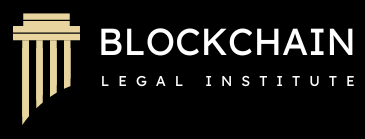The Blockchain Legal Institute Foundation (BLIF) is a 501(c)3 non-profit organization dedicated to bridging the gap between the rapidly evolving blockchain technology sector and the legal frameworks that govern it. BLIF’s mission encompasses several core objectives focused on promoting legal clarity, innovation, and ethical standards within the blockchain industry.
- Promoting Legal Clarity: The BLIF aims to provide comprehensive legal insights and guidance concerning blockchain technology and its applications. This involves demystifying the legal challenges and regulatory requirements facing blockchain projects, cryptocurrencies, and digital assets. The foundation seeks to work collaboratively with lawmakers, regulatory bodies, and industry stakeholders to develop clear, consistent legal frameworks that support innovation while protecting consumer interests.
- Education and Awareness: A critical part of the foundation’s mission is to educate both the legal community and the general public about blockchain technology, its potential uses, and the legal implications of its adoption. This includes organizing seminars, workshops, and conferences, as well as producing a range of educational materials and resources. The goal is to foster a well-informed community that can navigate the complexities of blockchain technology with a clear understanding of its legal aspects.
- Supporting Innovation: The BLIF is committed to supporting the development of blockchain technology within a safe and legally compliant framework. This involves providing legal support and guidance to startups and developers in the blockchain space, helping them to navigate regulatory hurdles and protect their innovations through intellectual property rights and other legal mechanisms.
- Advocacy and Policy Development: The foundation actively engages in advocacy efforts to influence policy-making in favor of a balanced approach to blockchain regulation. This includes participating in legislative processes, submitting position papers, and engaging with policy-makers to advocate for laws and regulations that encourage innovation while ensuring security, privacy, and consumer protection.
- Ethical Standards and Best Practices: Recognizing the potential risks associated with blockchain technology, such as fraud, money laundering, and privacy breaches, the BLIF promotes ethical standards and best practices within the industry. The foundation works to establish guidelines that encourage transparency, accountability, and responsible innovation among blockchain enterprises.
- Cross-disciplinary Collaboration: The BLIF fosters collaboration across disciplines by bringing together legal experts, technologists, entrepreneurs, and academics to address the multifaceted challenges and opportunities presented by blockchain technology. Through cross-disciplinary research and dialogue, the foundation aims to cultivate a holistic understanding of blockchain and its societal impacts.
- Global Perspective: Given the borderless nature of blockchain technology, the foundation adopts a global perspective in its mission, seeking to harmonize legal and regulatory approaches across jurisdictions. This involves collaboration with international organizations, legal associations, and regulatory bodies to work towards consistent global standards for blockchain technology.
In summary, the Blockchain Legal Institute Foundation would focus on fostering a legally compliant, innovative, and ethically responsible blockchain ecosystem. Through education, advocacy, and collaboration, the BLIF would aim to pave the way for the sustainable and beneficial development of blockchain technology worldwide.
